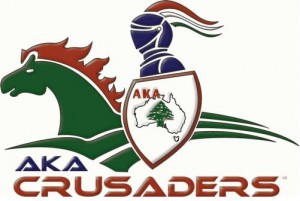
For information on the Teams and Upcoming Matches please visit http://akacrusaders.nsw.cricket.com.au/
General Principles
By definition Participants in sports that AKA plays includes players, coaches, spectators, referees / umpires / officials and parents.
Every Participant should:
- Discourage all instances of unsportsmanlike behaviour, foul or illegal play, or acts of violence, on and off the field.
- Respect the rights and dignity and worth of every person regardless of their gender, ability/disability, sexual orientation, cultural background or religion.
- Condemn the use of recreational and performance enhancing drugs and doping practices, their use endangers the health of players and is contrary to the concept of fair play.
Players Code
- Play by the rules at all times. Always respect the referee’s / umpires decision.
- Play equally intensively for yourself and your team.
- Captains carry out the responsibility at all times for ensuring that play is conducted within the spirit of the game as well as within the laws.
- Be equally loyal to yourself and your team.
- Exhibit good sportsmanship at all times. Never engage in disrespectful conduct of any sort including profanity, sledging, obscene gestures, offensive remarks, trash talking, taunting or other actions that are demeaning to other players, officials or supporters.
- Respect your opponents no matter how good or bad they are. Shake hands with and thank the opposition players and officials after the game – win, lose or draw.
- Co-operate with your coach, manager, team- mates and officials.
- Respect and adhere to all specific sport policies & by-laws.
- Respect that many officials, coaches and referees are volunteers who give up their time to provide their services. Treat them with the utmost respect.
- Care for and respect the facilities and equipment made available to you during training and competition.
- Communicate with all participants in a positive manner.
- Enjoy the game!
Coaches Code
- Teach your players that the rules of the game are a mutual agreement, which no one should try to evade or deliberately break.
- Actively discourage foul play and / or unsportsmanlike behaviour by players.
- Be reasonable with your demands on players, their time, their energy and their enthusiasm. Consider the health, safety and welfare of the players.
- Avoid over playing and / or training your players. Follow the advice of physicians and /or sports trainers to the letter when determining when an injured player is ready to commence playing or training. Show concern and caution towards sick and injured players.
- Ensure that equipment and facilities meet safety standards of the age, sex and ability of your team.
- Demonstrate respect for all your players no matter what level of ability they possess. Do not swear or abuse them and provide feedback to players and other participants in a manner sensitive to their needs. Avoid overly negative feedback.
- Use feedback in an effective manner.
- Develop respect for the ability of your opponents, referees and all officials.
- Make a personal commitment to keep informed on sound coaching principles and abreast of current trends.
- Do not exploit any coaching relationships to further personal, political or business interests at the expense of the best interest of your players.
- Ensure that your coaching reflects the level of the competition being played: do not be “winner – at -all – costs” coach.
- Maintain appropriate, professional relationships with players at all time. Any physical contact with a young person should be appropriate to the situation and necessary for the player’s skill development.
Referee / Umpires / Official Code
- Be consistent, objective and courteous in controlling the game. Be impartial.
- Promote respect for all opponents by disciplining unsporting behaviour. Place the safety and welfare of the participants above all else.
- Use common sense to ensure the ‘spirit of the game’ for players is not lost by being too pedantic when applying the rules.
- Ensure you remain up to date with any rule changes and / or interpretation of rules as laid down by the sport AKA is involved with.
- Make a personal commitment to keep yourself informed of sound officiating principles.
- Be conscious that you are seen as a ‘Role Model’.
- Show concern and caution towards sick and injured players.
- Ensure, as a referee / umpire, your behaviour (on and off the field) is consistent with the principles of good sportsmanship. Set a good example by the way you dress, speak and act towards players, coaches, officials, parents and spectators.
- Promote the specific sport you are involved in as a safe and enjoyable sport to be enjoyed by all participants.
- Give all people a “fair go” regardless of their gender, ability, cultural background or religion.
Parents Code
- Remember that children participate in sport for their enjoyment, not yours.
- Encourage children to participate, do not force them.
- Never ridicule or yell at a child for making a mistake or losing a competition.
- Focus on your child’s efforts and performance rather than whether they win or lose.
- Respect the officials’ decision. Do not abuse, threaten or intimidate a referee/umpire or match official and do not show dissention, displeasure or disapproval towards a referee/umpire or match official’s decision in an abusive or unreasonable fashion.
- Condemn the use of violence in any form, whether it occurs between spectators, coaches, officials or players.
- Support skilled performances.
- Show respect for opponents. Without them, there will be no game.
- Display appropriate social behaviour by not using profane, demeaning or derogatory language, or harassing players, coaches, officials or other spectators.
- Restrict the consumption of alcohol to designated licensed areas. Never arrive at a junior sports game under the influence of alcohol or bring alcohol to a junior sports game.
- Leave the area tidy and free from any litter or other mess.
- Do not enter the playing field.
- At all times, follow the direction of the ground manager and or other match day staff.
Spectators Code
- Respect the officials’ decision. Do not abuse, threaten or intimidate a referee/umpire or match official and do not show dissention, displeasure or disapproval towards a referee/umpire or match official’s decision in an abusive or unreasonable fashion.
- Condemn the use of violence in any form, whether it occurs between spectators, coaches, officials or players.
- Support skilled performances.
- Remember that children participate in sport for their enjoyment, not yours.
- Show respect for opponents. Without them, there will be no game.
- Display appropriate social behaviour by not using profane, demeaning or derogatory language, or harassing players, coaches, officials or other spectators.
- Restrict the consumption of alcohol to designated licensed areas. Never arrive at a junior sports game under the influence of alcohol or bring alcohol to a junior sports game.
- Leave the area tidy and free from any litter or other mess.
- Do not enter the playing field.
- The referee/Umpire may issue a warning to the team captain or manager, where the team’s spectators are breaking the code of behaviour, so as to let the spectators know that their team will be penalised if they continue to behave in a manner not inline with the code of behaviour
Alcohol Policy
The consumption of alcohol is subject to regulations laid down by the New South Wales Liquor Act and specific Council laws and regulations. Misbehaviour, particularly where alcohol is involved, may result in severe penalties up to and including eviction of individuals and/or teams from sporting competitions that AKA compete in specifically.
AKA Sports Uniform Policy
All participants who represent AKA in sports activities and functions (where required) will wear the AKA approved uniform and colours for the Association. There will be no exception. The care and responsibility of the AKA Sports uniform and associated items will be that of the participant.
Leaving the Grounds
Leave all playing fields/ grounds in a quiet and orderly manner, respecting traffic laws and being mindful of local residents.
Power to Report
Breaches of the AKA Code of Behaviour (whether it be by a player, spectator, coach, referee/umpire) may be reported (in writing) to the Secretary of the AKA. Lodgement of breaches should be submitted within 48 hours of conclusion of the sporting event.
The Secretary
Australian Kfarsghab Association
PO BOX 6880
Parramatta BC NSW 2150
Code of Behaviour Penalties
Breaches of the Code of Behaviour that are reported to the AKA will be handled through internal procedures and policies set by the AKA. Penalties may apply where it is found that a breach occurs by participants as defined above.
Racial or religious harassment at any level of our sport, both on and off the field of play, will not be tolerated under any circumstances. Club officials and members have a responsibility to create and maintain a playing environment in which participants feel comfortable and where people respect and tolerate the rights, views and opinions of others. Individuals who experience racial or religious harassment are entitled to the support of the AKA, other officials and representatives of the Association.
All complaints of such harassment will be treated seriously and will be investigated promptly and tactfully, including action being taken to ensure that the harassment stops.
The AKA will also take action to ensure that any person who lodges a complaint or who assists the investigation of a complaint is not victimised or disadvantaged in any way. Where such a situation occurs, the individual/s found to be in breach of this policy will be required to appear before the AKA to provide an explanation, and appropriate disciplinary action will be taken against any person deemed to have breached the policy.
Where it is found that the harassment alleged did not occur, all necessary action will be taken to ensure that the reputation of the accused person/s is not affected or impugned. Furthermore any individual who deliberately fabricates or falsifies a complaint or falsely supports such a complaint of harassment will be required to appear before the AKA to provide an explanation, and if proven, subject to appropriate disciplinary action. Any person who falsely lays a complaint should also be aware that the accused person/s has the right to pursue legal action for defamation.
It is very desirable that Referees / Umpires, Coaches & Captains or Officials should immediately attempt to resolve the issue. Prompt action as soon after the incident occurs as is possible will often result in resolution of the matter, before other parties can become involved. If the matter can not be immediately resolved to the satisfaction of those concerned, then any further action should be put in writing and submitted to the AKA.
The Secretary
Australian Kfarsghab Association
PO BOX 6880
Parramatta BC NSW 2150
What is Harassment?
Harassment is any form of behaviour, which is uninvited, unwelcome and which humiliates, offends or intimidates another person, or makes the environment uncomfortable or unpleasant.
What is Racial Harassment?
Racial Harassment is the derogatory and offensive use of language and/or behaviour
aimed at a person or groups of people based on their:
- Colour;
- Race;
- Ethnic or Cultural background; or
- Migration.
Racial Harassment is unlawful and will not be tolerated by the AKA under any circumstances. It can involve and affect players, coaches, spectators, referees/umpires/officials and parents.
Examples of Harassment or Discrimination
Examples of behaviour, which could form the basis for a complaint, include:
- Distribution or display of offensive racist or racially oriented material, such as posters, pictures, cartoons etc.
- Jokes or derogatory comments referring to ethnicity or racial characteristics; Racially oriented verbal abuse; Repeated irrelevant references to a person’s race, cultural or ethnic background;
- Practical jokes based on race or directed only at members of a particular ethnic group;
- Isolation or segregation of those from a particular racial or ethnic background;
- Campaigns of hate or silence based on race; and
- Physical assault based on race.
Issue Date July 2006
